In the age of smartphones, the integration of technology into healthcare has led to the development of a myriad of medical apps for Android. These apps not only facilitate better healthcare management but also empower users to take control of their well-being.
In this article, we delve into the top 10 medical apps for Android in 2024, focusing on their quality, features, and the impact they can have on users’ health.
Don’t Miss: Top 10 Best Lifestyle Apps
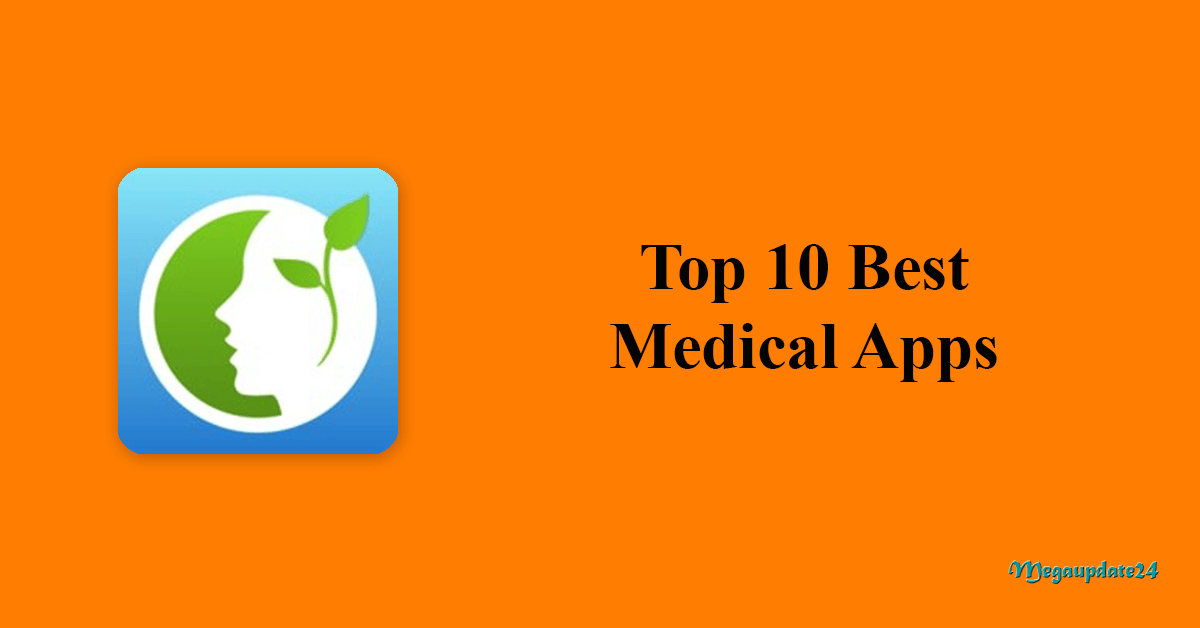
About Medical Apps on Android
Medical apps on Android cover a broad spectrum of healthcare needs, ranging from symptom tracking to medication management and telehealth services. With the convenience of having health-related information at your fingertips, these apps are designed to empower users to make informed decisions about their health.
Types Of Best Medical Apps
In the rapidly advancing world of healthcare and technology, medical apps play a pivotal role in facilitating patient care, medical education, and overall health management. Here are some key types of the best medical apps, each designed to address specific needs within the healthcare landscape.
1. Telemedicine Apps
- Virtual Consultation Platforms: Connect patients with healthcare professionals for remote consultations, allowing for the diagnosis and treatment of various medical conditions.
- Prescription Refill Apps: Enable users to request prescription refills and receive medications through virtual consultations.
- Mental Health Teletherapy Apps: Provide mental health support through virtual therapy sessions with licensed professionals.
2. Health Monitoring Apps
- Fitness Tracking Apps: Monitor physical activity, track steps, and calories burned, and offer personalized workout plans.
- Chronic Disease Management Apps: Aid in managing conditions like diabetes, hypertension, or asthma by tracking symptoms, medications, and vital signs.
- Sleep Tracking Apps: Analyze sleep patterns and offer insights for improving sleep quality.
3. Medication Management Apps
- Medication Reminder Apps: Send notifications for medication doses, ensuring patients adhere to prescribed schedules.
- Pill Identification Apps: Help users identify medications by scanning pill images, and providing information about their uses and potential side effects.
- Medication Interaction Checkers: Warn users about potential interactions between different medications.
4. Medical Reference Apps
- Drug Reference Guides: Offer comprehensive information about medications, including dosages, side effects, and contraindications.
- Medical Dictionary Apps: Provide definitions and explanations for medical terms, aiding both healthcare professionals and patients.
- Clinical Guidelines Apps: Offer quick access to evidence-based clinical guidelines for various medical conditions.
5. Diagnostic and Imaging Apps
- Dermatology Apps: Allow users to submit images of skin conditions for remote dermatologist evaluation.
- Radiology Apps: Facilitate the viewing and interpretation of medical imaging, such as X-rays and MRIs.
- Diagnostic Decision Support Apps: Assist healthcare professionals in making accurate diagnoses through symptom analysis and data interpretation.
6. Patient Education Apps
- Anatomy Learning Apps: Educate users, including medical students, healthcare professionals, and patients, about human anatomy.
- Health and Wellness Educational Apps: Provide information on a wide range of health topics, preventive care, and wellness strategies.
- Procedure Explanation Apps: Offer detailed explanations of medical procedures to enhance patient understanding.
7. Emergency and First Aid Apps
- First Aid Guides: Provide step-by-step instructions for administering first aid in emergencies.
- Emergency Contact Apps: Store and quickly access emergency contact information and medical histories.
- CPR Instruction Apps: Offer guidance on performing cardiopulmonary resuscitation (CPR) with interactive tutorials.
8. Medical Training and Simulation Apps
- Medical Simulation Apps: Allow medical professionals to practice procedures and surgeries in a virtual environment.
- Continuing Medical Education (CME) Apps: Provide healthcare professionals with access to accredited educational courses to maintain and enhance their skills.
- Medical Quiz Apps: Offer quizzes and assessments to test and reinforce medical knowledge.
9. Women’s Health Apps
- Pregnancy Tracking Apps: Monitor pregnancy progress, provide information about fetal development, and offer health tips for expectant mothers.
- Menstrual Cycle Tracking Apps: Help women track menstrual cycles, ovulation, and fertility.
- Breast Health Apps: Provide information about breast health, self-examinations, and mammogram reminders.
10. Appointment Scheduling Apps
- Telehealth Scheduling Apps: Allow patients to schedule virtual consultations with healthcare providers.
- Clinic Appointment Apps: Enable users to book in-person appointments, receive appointment reminders, and manage healthcare visits.
- Prescription Pickup Alerts: Notify users when their prescriptions are ready for pickup at pharmacies.
Top 10 Best Medical Apps (Most Quality)
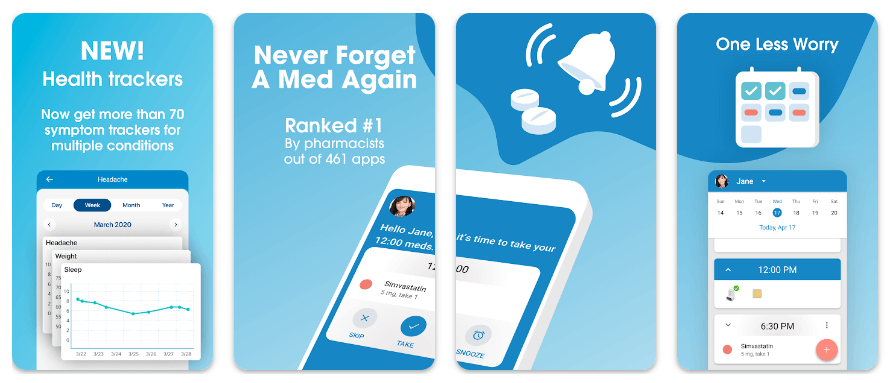
1. Medisafe Medication Management
Medisafe is a comprehensive medication management app that goes beyond simple pill reminders. It allows users to track their medication adherence, set dosage reminders, and provide personalized reports for a holistic view of their medication regimen.
Key Features:
- Medication tracking and reminders.
- Interaction checker for potential drug interactions.
- Pill identifier for easy identification.
- Medication adherence reports.
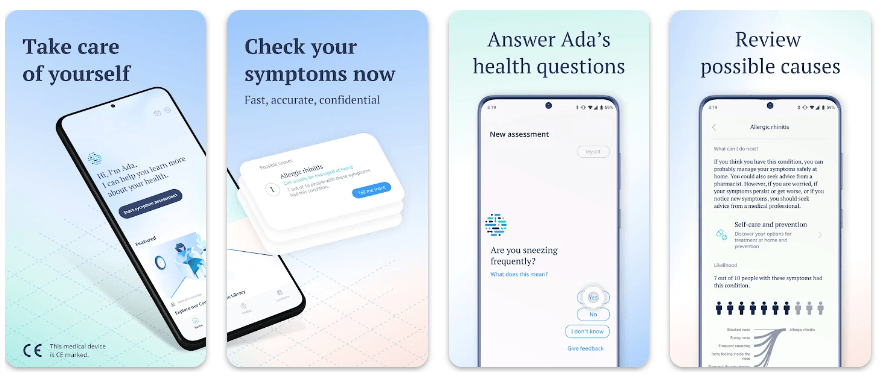
2. Ada – Health Companion
Ada is an AI-driven health companion that assists users in understanding symptoms, assessing potential conditions, and providing personalized health information. It acts as a virtual assistant for self-assessment before seeking professional medical advice.
Key Features:
- Symptom checker and assessment.
- Personalized health information.
- Integration with wearables for data tracking.
- Health insights and trends analysis.
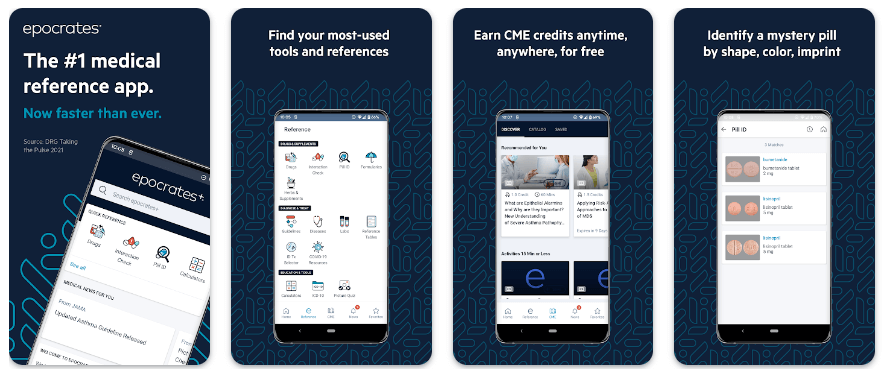
3. Epocrates
Epocrates is a trusted medical app for healthcare professionals, providing a wealth of clinical information at their fingertips. From drug references to disease information, Epocrates aids in making informed decisions during patient care.
Key Features:
- Drug reference and interaction checker.
- Disease and diagnostic information.
- Medical calculators for dosage and measurements.
- Continuous updates on medical news and research.
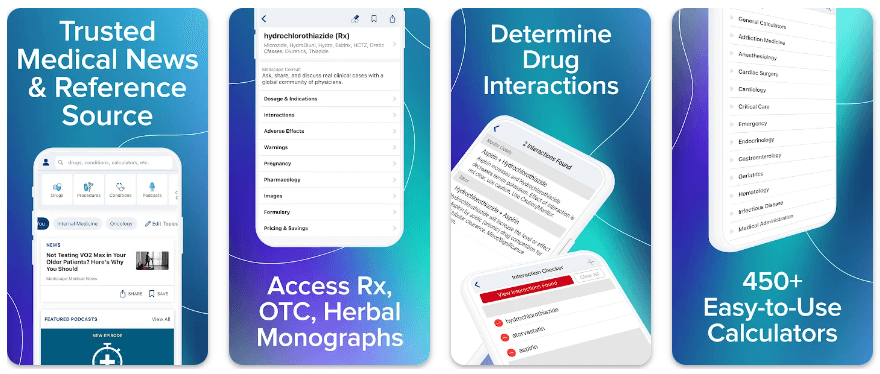
4. Medscape
Medscape is a comprehensive medical app designed for healthcare professionals, offering a vast array of clinical resources, news, and educational content. It serves as a one-stop platform for medical information and continuing education.
Key Features:
- Medical news and updates.
- Drug reference and interaction checker.
- Continuing medical education (CME) courses.
- Procedure and protocol videos.
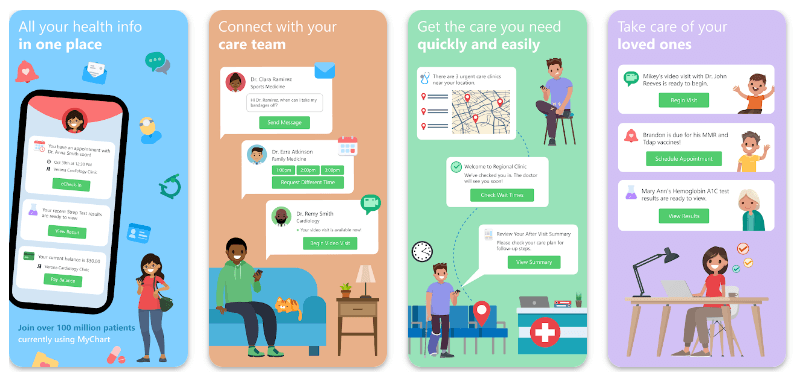
5. MyChart
MyChart provides a bridge between patients and their healthcare providers by offering secure access to medical records, test results, appointment scheduling, and prescription management. It enhances communication and engagement between patients and healthcare institutions.
Key Features:
- Access to medical records and test results.
- Secure messaging with healthcare providers.
- Appointment scheduling and reminders.
- Prescription management and refill requests.

6. Ada Doctor – Telehealth & Medical Advice
Ada Doctor is a telehealth app that connects users with qualified healthcare professionals for virtual consultations. It facilitates timely medical advice and allows users to seek guidance from licensed doctors from the comfort of their homes.
Key Features:
- Virtual doctor consultations.
- Prescription issuance for certain medications.
- Secure and confidential communication.
- Convenient appointment scheduling.
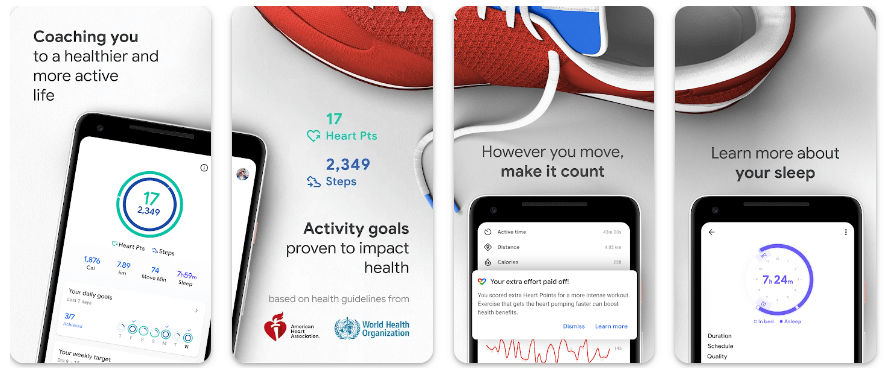
7. Google Fit
Google Fit serves as a comprehensive health and fitness app, integrating data from various sources such as wearables and other health apps. It tracks physical activity, monitors heart rate, and provides insights into overall wellness.
Key Features:
- Activity tracking and goal setting.
- Heart rate monitoring.
- Integration with various fitness apps.
- Insights into daily and weekly activity trends.
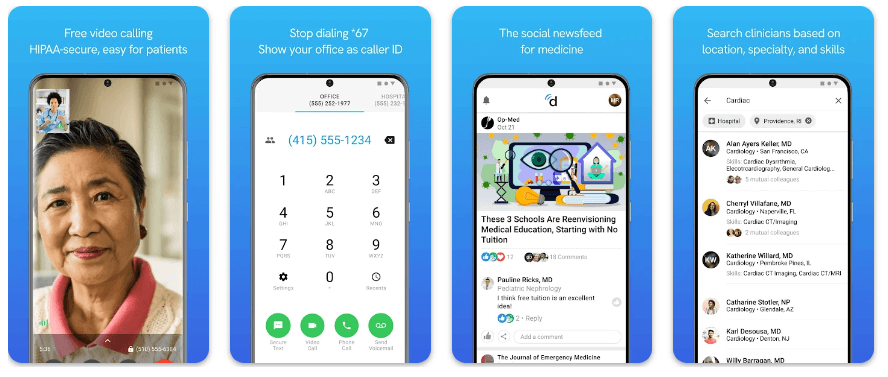
8. Doximity – Medical Network
Doximity is a professional medical network that connects healthcare professionals, facilitating communication, collaboration, and networking within the medical community. It serves as a platform for doctors to share information and seek advice.
Key Features:
- Secure messaging and collaboration.
- Medical news and research updates.
- Physician directory for networking.
- CME opportunities.
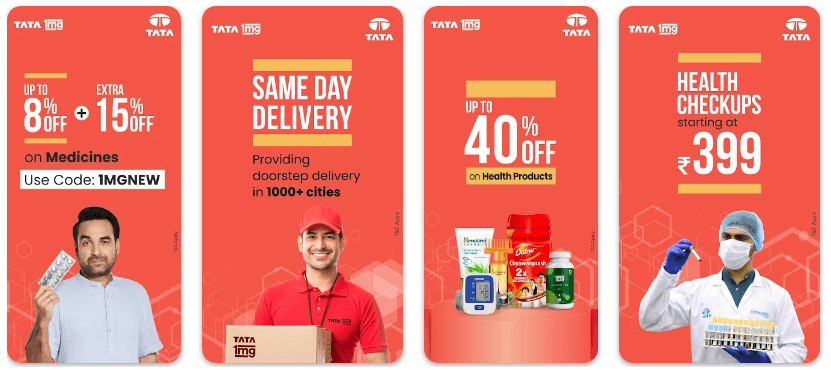
9. 1mg – Online Medical Store & Healthcare App
1mg is an all-encompassing healthcare app that combines medication information, online pharmacy services, and diagnostic test booking. It empowers users to manage their health by providing access to essential healthcare resources.
Key Features:
- Medication information and reminders.
- Online pharmacy services.
- Diagnostic test booking.
- Health articles and information.

10. Ada – Diabetes Management
Ada’s Diabetes Management app is specifically tailored for individuals managing diabetes. It provides tools for glucose tracking, medication management, and lifestyle monitoring to support effective diabetes self-management.
Key Features:
- Blood glucose tracking and analysis.
- Medication management for diabetes.
- Lifestyle and nutrition tracking.
- Personalized insights for diabetes management.
Medical apps have become powerful tools for managing health, accessing medical information, and facilitating communication between patients and healthcare providers. Here’s a comprehensive guide on how to effectively use medical apps:
1. Choosing and Downloading the App
- Select a Trusted Source: Download medical apps from official app stores such as the Apple App Store or Google Play Store to ensure authenticity and security.
- Read Reviews: Before downloading, read user reviews to gauge the app’s reliability and user satisfaction.
- Verify Credentials: Check if the app is developed by a reputable healthcare organization, medical institution, or recognized developer.
2. Account Setup and Security
- Create a Secure Account: If the app requires user registration, create an account with a strong password and consider enabling two-factor authentication if available.
- Provide Accurate Information: Complete your profile with accurate personal and medical information to ensure relevant and personalized features.
- Review Privacy Settings: Understand and review the app’s privacy settings, and only grant necessary permissions to protect your data.
3. Exploring App Features
- Tutorials and Guides: Many medical apps provide tutorials or user guides. Take the time to explore these resources for a better understanding of app features.
- Navigate Menus: Familiarize yourself with the app’s menus, tabs, and icons. Explore each section to discover all available features.
- Customize Preferences: Adjust settings and preferences according to your needs. This might include notification preferences, measurement units, or language settings.
4. Using Telemedicine Apps
- Schedule Appointments: For telemedicine apps, schedule virtual appointments with healthcare providers through the app’s scheduling feature.
- Prepare for Consultations: Before virtual consultations, gather relevant information such as symptoms, medications, and previous health records.
- Test Connectivity: Ensure a stable internet connection and test audio and video functionalities before virtual appointments.
5. Health Monitoring Apps
- Input Accurate Data: For fitness trackers and health monitoring apps, provide accurate information such as age, weight, and activity level for personalized insights.
- Set Goals: Utilize goal-setting features to track and achieve specific health and fitness objectives.
- Regularly Check Progress: Monitor your progress regularly and make adjustments to your goals as needed.
6. Medication Management Apps
- Set Medication Reminders: If the app includes medication management features, set reminders for medication doses to ensure adherence to prescribed schedules.
- Record Side Effects: Use the app to document any side effects or changes in your condition related to medications.
- Utilize Medication Information: Explore the app for additional information on medications, including potential interactions and side effects.
7. Medical Reference Apps
- Browse Drug Information: Use drug reference apps to access detailed information about medications, including dosages, uses, and precautions.
- Learn Medical Terminology: Explore medical dictionary features to understand and learn medical terminology.
- Access Clinical Guidelines: Utilize apps with clinical guidelines to stay informed about evidence-based medical practices.
8. Diagnostic and Imaging Apps
- Submit Images for Analysis: For dermatology or diagnostic apps, follow the instructions to submit images for remote analysis.
- Interpret Imaging Results: If the app involves medical imaging, review and interpret the results with guidance from healthcare professionals.
- Connect with Healthcare Providers: Some diagnostic apps facilitate communication with healthcare providers. Use these features to discuss results or seek further advice.
9. Educational Apps
- Explore Interactive Content: Engage with interactive content, such as anatomy models or virtual simulations, to enhance your understanding.
- Participate in Courses: If the app offers educational courses, participate to expand your medical knowledge or skills.
- Regularly Check for Updates: Educational apps may release new content or updates. Regularly check for updates to access the latest information.
10. Emergency and First Aid Apps
- Follow First Aid Instructions: In emergencies, follow the step-by-step instructions provided by first aid apps.
- Access Emergency Contacts: Store emergency contacts and medical information within the app for quick access during crises.
- Understand CPR Techniques: If the app includes CPR instructions, familiarize yourself with proper techniques through interactive tutorials.
11. Regular Updates and Maintenance
- Update the App: Keep the app updated to access new features, improvements, and security patches.
- Backup App Data: If the app stores critical data, regularly back up your information to prevent data loss.
- Remove Unused Apps: Declutter your device by uninstalling medical apps you no longer use or need.
12. Consulting Healthcare Professionals
- Share App Data with Providers: If the app allows, share relevant data with your healthcare providers during in-person or virtual visits.
- Ask Questions: If you have concerns or questions about the app’s recommendations, consult your healthcare professional for guidance.
- Integrate App Data: For apps designed to integrate with electronic health records, ensure seamless communication between the app and your healthcare provider.
By following these steps, you can maximize the benefits of medical apps, empowering yourself to actively manage your health and well-being. Always consult with healthcare professionals for personalized advice and interpretation of medical information obtained through apps.
Downloading and installing the games on both Android and iOS devices is a straightforward process. Here’s a step-by-step guide for each platform:
For Android:
- Open the Google Play Store
- Search for the app
- Select the app
- Download and Install
- Launch the app
For iOS:
- Open the App Store
- Search for the app
- Select the app
- Download and Install
- Wait for Installation
- Launch the app
FAQs
1. Are these medical apps available for free on Android?
Most of the listed medical apps offer free versions with basic features, but some may include premium subscriptions or in-app purchases for additional functionalities.
2. How secure are these apps in terms of user data and privacy?
Medical apps prioritize user data security and privacy, employing encryption and compliance with healthcare regulations to ensure the confidentiality of personal health information.
3. Can these apps replace professional medical advice and diagnosis?
While these apps provide valuable health information and tools, they should not replace professional medical advice. Users are encouraged to consult with healthcare professionals for accurate diagnoses and personalized treatment plans.
4. Do these apps cater to specific medical conditions?
Yes, some of the apps on the list, such as Ada – Diabetes Management, focus on specific medical conditions to provide tailored support and features.
5. Are these apps user-friendly for individuals with varying levels of tech proficiency?
Medical apps are designed with user-friendly interfaces, and many include tutorials or guides to ensure accessibility for individuals with varying levels of tech proficiency.
Conclusion
The integration of high-quality medical apps into the Android ecosystem has transformed how individuals manage their health and how healthcare professionals deliver care. From medication management to virtual consultations and comprehensive health tracking, these apps empower users to be proactive in their well-being.
As we move forward, the landscape of medical apps on Android continues to evolve, promising even more innovative solutions for healthcare management.